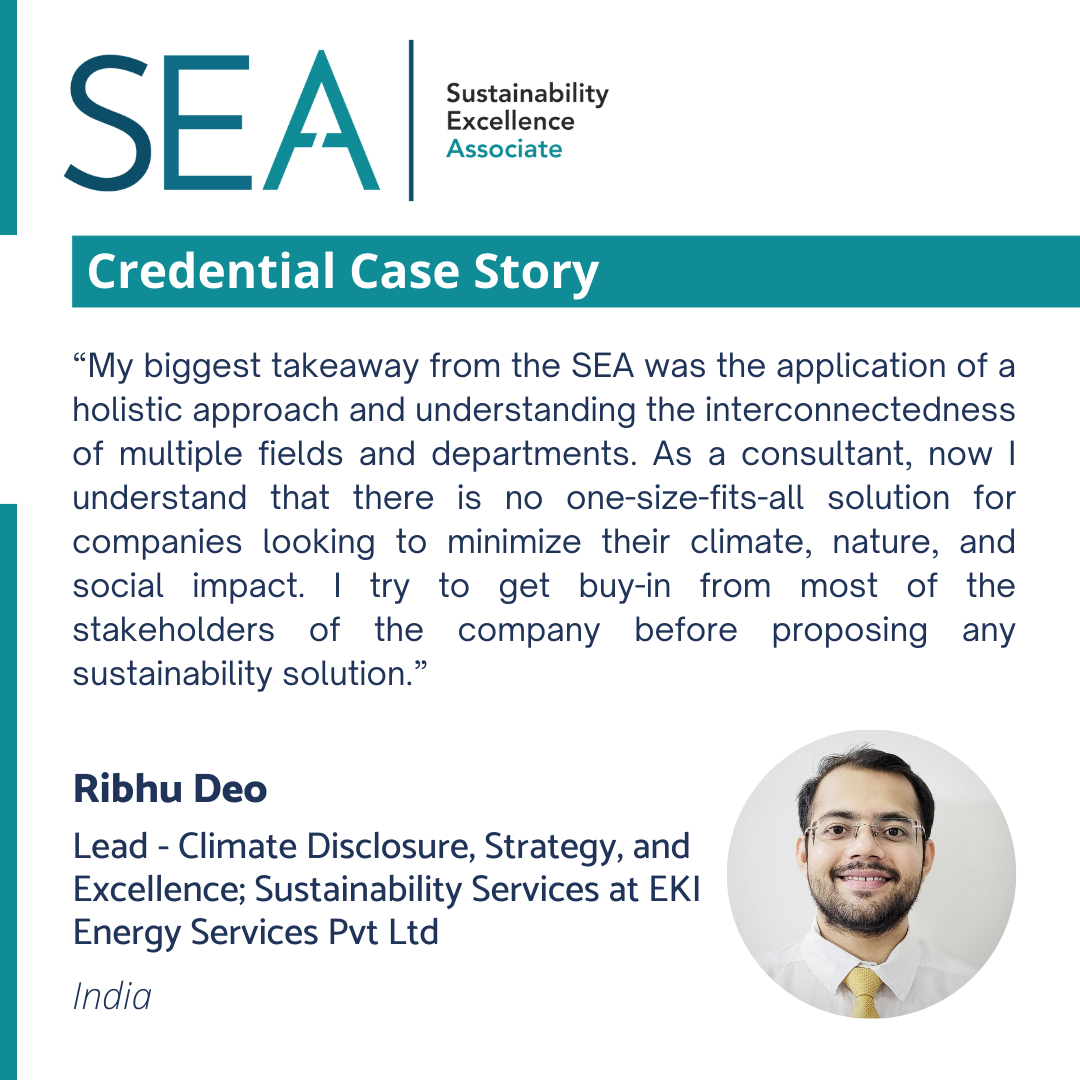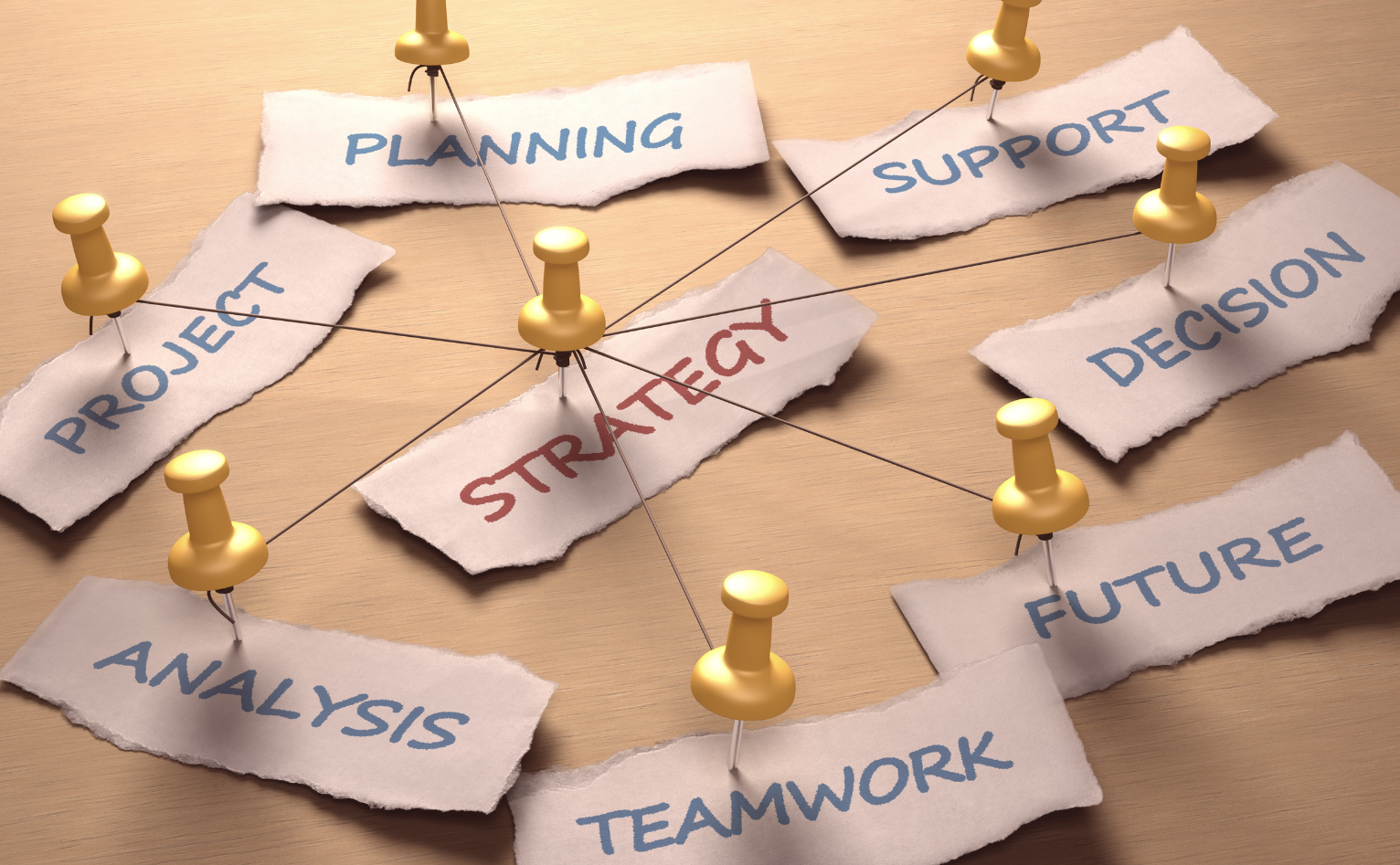What brought you to this moment in your career where the Sustainability Excellence Associate (SEA) credential made sense for you?
I have been in the sustainability domain for best part of the past 7 years, first as an academic and then as a professional. Here in India, corporate sustainability is gaining momentum like never before. Few months back, I was exploring globally renowned certifications and it was then that I came across the SEA and SEP credentials. Sustainability Excellence Associate (SEA) credential has a wonderful market reputation and can boost one’s credibility, particularly as a consultant. I saw SEA as a potential opportunity to make myself stand out among the sea of sustainability consultants.
I majored in Environment Management from Indian Institute of Forest Management in 2019, and thus I had decent exposure to sustainability and related issues however, the SEA credentialization process further enhanced my understanding and honed my skills. I have particular interest in climate and nature related performance of businesses. Having achieved the SEA credential, I plan to pursue SEP as well.
How are you putting the knowledge, skills and ability demonstrated in the SEA to work in your career (or work) today?
The biggest takeaway from SEA was the application of holistic approach and understanding the interconnectedness of multiple fields and departments. As a consultant, now I understand that there is no one-size-fits-all solution for companies looking to minimize their climate, nature, and social impact. I try to get a buy-in from most of the stakeholders of the company before proposing any sustainability solution. The SEA has built upon my previous experience in natural resource management and has complimented it in many ways.
In my current role, I am involved equally in Business Development as well as project execution. I am a trainer as well. This means that more than 70% of my time is dedicated for client interactions and trainings. Many concepts which I came across during SEA, e.g.- ‘Weak’ vs ‘Strong’ sustainability, I use in my training sessions.
For those starting out in the sustainability field, what advice do you have for them?
Sustainability is an expansive field and for newcomers it may seem, at times, overwhelming with loads of standards, framework, tools, and platforms. My first advice to those starting out would be to enjoy the process. Sustainability is a journey which they should enjoy. Being passionate is a must, and professionals should rather look to thrive than survive. This is an ever-evolving and dynamic field, so we have to keep up with the latest updates in the sustainability spheres. I would recommend early career professionals to choose their area of interest and dig deep in the field to gain expertise.




